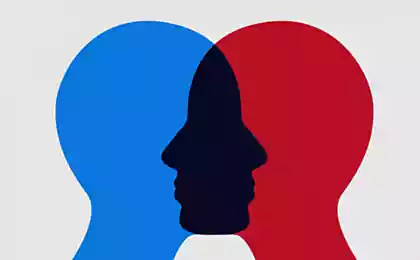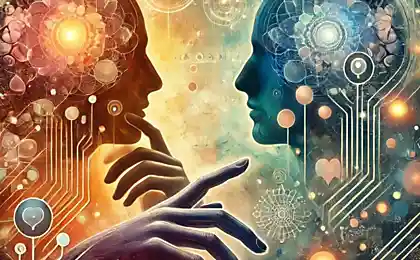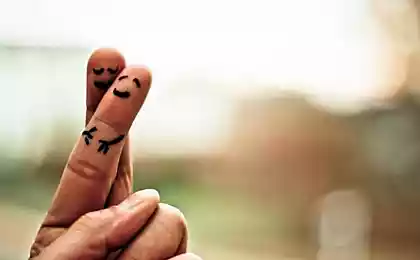566
Against empathy: why compassion is of no use
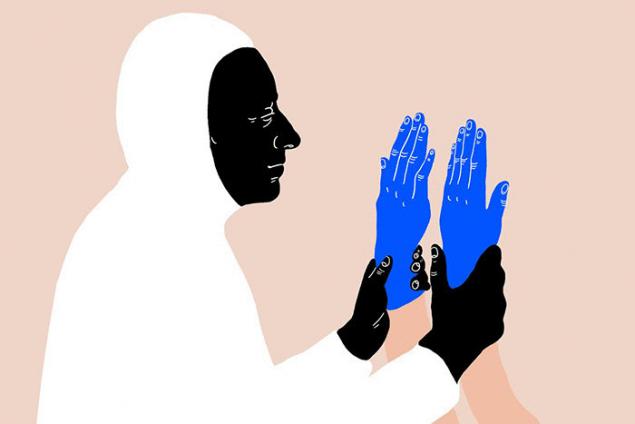
© Sara Andreasson
Special miniempire seems perfectly positive concept: the necessity of empathy to others is confirmed by all sorts of moral authority from the Bible to modern scientists. But what if to think about the negative consequences of emotional sensitivity? Paul bloom, psychology Professor at Yale University, wrote an article about the fact that the possibility of empathy is overrated, and its lack does not necessarily make you a bad person.. When people ask me what I'm working on, I often say that writing a book about empathy. People usually spread out in smiles and nod, but then I added: "I'm against empathy". This often results in awkward laughter.
Initially, this reaction I was amazed, but then I realized that to speak against empathy is like saying that you hate kittens: the statement is so wild that it can only be a joke. I also learned how to clarify the terminology and explain that I am not against morality, compassion, kindness and love, as opposed to having to be a good neighbor, to do the right thing and make the world a better place. I say more: if you want to be a good person and do good works, empathy is a poor guide.
The word "empathy" is used in different contexts, but here I use the most common value, which refers to the fact that the philosophers of the eighteenth century like Adam Smith called sympathy. This process of perceiving the world through the eyes of others, the ability to stand in their place, feel their pain. Some researchers also use this term for a more cold-blooded assessment processes of what other people think: their motivations, plans, beliefs. This is sometimes called cognitive empathy as opposed to emotional. I will stick to this terminology in their arguments, but it is worth remembering that these two types of empathy are associated with different brain processes (you may have developed one kind of empathy and the other undeveloped), and that most of the discussions about the importance of empathy for morality focus on the emotional aspect.
A certain level of empathy we are born with: the view and the sounds of other people's suffering is unpleasant for small children, and if they have the opportunity, they try to help, patting and soothing the frustrated man. This is not a unique human trait: the primatologist Frans de Waal noticed that the chimps often hug and stroke a victim of someone's attack. Empathy can occur automatically, even against our will. Adam Smith describes people's "sensitive feelings", which, noticing the wound or ulcer is poor, "able to feel an unpleasant sensation in the same part of his body". Empathy can also expand by imagination. In one of his speeches before the accession to the presidency, Barack Obama stressed how important it is to "see the world through the eyes of those who are different from us — a hungry child, a laid-off steelworker, the family that lost everything after hurricane... When you think that way, you expand the boundaries of concern for other people, regardless of whether close friends or strangers — and then it becomes more difficult to do nothing, no help".
"Most people believe that the benefits of empathy as obvious as the harm of racism: that is too obvious to require confirmation"
Obama is right about the last conclusion — the society is actively supported what the psychologist Daniel Batson calls the empathy altruism hypothesis: when you sympathize with others, the more likely that you will help them. In General, empathy helps to blur the boundaries between you and the other person, it is a powerful remedy against selfishness and indifference.
Most people believe that the benefits of empathy as obvious as the harm of racism: that is too obvious to require confirmation. I think this is a mistake. I believe that certain aspects of empathy make it a poor guide to social policy. Empathy the full of biases: we are more inclined to sympathize with attractive people, those who look like us or have the same ethnic roots. And it is very limited: it connects us to individuals, real or imaginary, but makes it insensitive to quantitative differences or statistics. As said by mother Teresa: "If I look at the crowd, I never do anything. If I look at one person, then begin to act."
In light of these nuances of our public decisions will be fairer and more moral, if we try to abstract from empathy. Our policy will be better when we realize that a hundred deaths are worse than one, even if we know the name of a single victim. And recognize that human life in a distant land is not less valuable than the life of our neighbor — even if our emotions pull us in a different direction.
But if you accept this argument, there are other aspects, besides public policy. Imagine your daily contact with parents and children, partners and friends. Let empathy does not improve our policy, but it seems to be an absolute blessing when it comes to personal relationships — the more, the better.
I believed it before, but now not sure.
One of the most thoughtful defenders of empathy, psychologist Simon Baron-Cohen. Released in 2011, the book "Science of evil", he argues that the idea of evil must be replaced by "the destruction of empathy" and that a high level of empathy makes virtuous individuals and whole societies. People differ in the capacity for empathy, and Baron-Cohen offers a scale from 0 (complete lack of empathy) to 6, when people all the time focuses on the feelings of others — a kind of permanent hyperexcitability. The scientist describes the identity of the sixth type:
"Hannah — psychotherapist, and she has a gift to tune into the feelings of others. When you walk into her living room, she reads the emotions in your face, posture, gait, and posture. The first question she asks "How are you doing?", but this is not a formal platitude. The tone of her voice sounds like an invitation to trust, to open up, to share. Even if you answer with a short phrase, your tone of voice reveals to her your inner emotional state, and she quickly continues, "You seem kind of sad. Something upset you?"
Failing to realize what is happening, you already revealed before that great listener who interrupts you just to soothe or to Express concern, to reflect your feelings, sometimes offering soft words of support that you feel their importance. Hannah behaves, not because it's her job. She equally holds himself with the customers, friends, and even strangers. She feels the endless need to empathize".
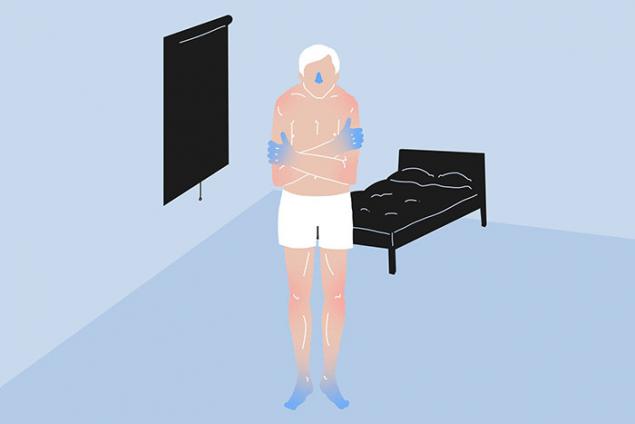
Easy to see why she was impressed by Baron-Cohen. Hannah looks like a good therapist, and it seems that it could be a good mother. But imagine what it's like to be her. Her concern for others is not caused by some special attitude to it all is equal to: both friends and strangers. Her drive is impossible to control or stop. Her experience is the opposite of selfishness but just as extreme.
In addition, for such a strong capacity for empathy you have to pay. People with this syndrome often enter into asymmetric relationships when they support others, but do not receive sufficient support. They are also more prone to suffer from depression and anxiety disorders. The ability to feel the pain of others leads to what psychologists call empathic stress. It is possible to oppose this state nematicheskogo sympathy — more distantsirovaniya manifestation of love, kindness and care. It is worth to elaborate on this distinction, because fans of empathy here start to get confused, believing that the only force that can motivate man to do good, is the empathetic impulse. But this is a mistake. Imagine the child of your friend drowned. Vysokoenergeticheskie reaction in such a situation is to experience the same feelings of your friend, that is a huge grief and pain. It's not very helpful — you just will experience emotional exhaustion. In contrast, compassion involves concern and love for his friend and desire to help, but it doesn't require to share all his sufferings. The doctors care about the patients without experiencing emotional empathy, and that their calm and composure, sometimes is the best support.
When we think about people who are on the other end of the scale Baron-Cohen, — at zero, we usually mean psychopaths (or sociopaths or people with antisocial disorder usually all of these terms are used interchangeably). In popular culture, psychopaths are the embodiment of evil: this term describes as predatory top-managers and callous politicians, and serial killers like Hannibal Lecter.
There is a standard questionnaire that detects psychopathy, developed by the psychologist Robert Hare. For many people the main point of the test is "callousness/lack of empathy". Here is the distinction between emotional and cognitive empathy, as many sociopaths are well aware of what's going on in the mind of others, allowing them to be excellent manipulators. But they are unable to share the pain of others — that's why psychopaths are so bad.
"People with Asperger's syndrome and autism low level of both cognitive and emotional empathy. Despite this, they show no propensity for violence and the exploitation of others"
It looks like the popular image, but the truth is much more complicated. First, psychopaths suffer from a lack of not only empathy, but almost all emotional responses, and possible reasons for their bad behavior — in a more General emotional problem. Exploring the scientific literature on this topic, psychologist Jennifer skim and her colleagues came to the conclusion that the callousness and lack of empathy are poorly connected with brutality and criminal tendencies. Test Hare to diagnose psychopathy because he commits violent and antisocial behavior in the past, a parasitic lifestyle, poor control over impulsive urges and the inability to restrain themselves. Remove the lack of empathy from this list — and the prediction accuracy will not change.
What about aggressive behavior in General? Aggressive people are less capable of empathy? Even I, a skeptic, can you imagine that there is some subtle connection between empathy and aggression, assuming that a person with a great capacity for compassion would hate to hurt other people. But recent data summarizing the results of all available studies on the relationship between empathy and aggression, lead to a different conclusion. According to these data, the relationship is very weak.
A decisive test to test the theory that low levels of empathy makes people bad, would be to study groups of people who lack both the empathy and other traits associated with psychopathy. Such people exist. Baron-Cohen draws attention to the fact that people with Asperger's syndrome and autism low level of both cognitive and emotional empathy. Despite this, they show no propensity for violence and exploitation of others. Moreover, they often follow strict moral rules and are more likely to become victims of violence than its initiators.
Do I think empathy is irrelevant or damaging to our relationships with people? It would be too hard conclusion. There are many studies that find a correlation between level of empathy and willingness to help people. Many of them carried out poorly. They often measure empathy through self-observation of participants, so it is unknown what we're dealing with scientists with a real level of empathy or perceptions of people about themselves. However, there is some scientific evidence that high ability for compassion increases the likelihood of altruistic behavior, so it would be wrong to deny the role of empathy in human morality.
But we know that the greater capacity for empathy does not make a person good as well as weak capacity for empathy does not make a person bad. Virtue has more to do with distantsirovaniya sympathy and kindness, with intelligence, self-control and sense of justice. And to be a bad person is first of all not to care about others and to be unable to control their appetites.
Source: theoryandpractice.ru





